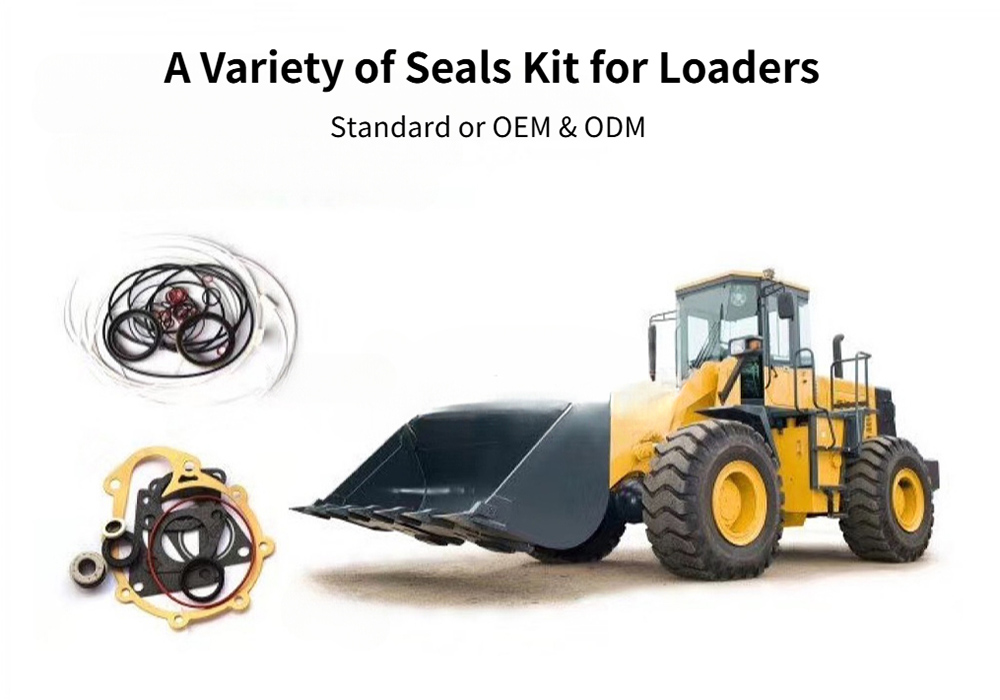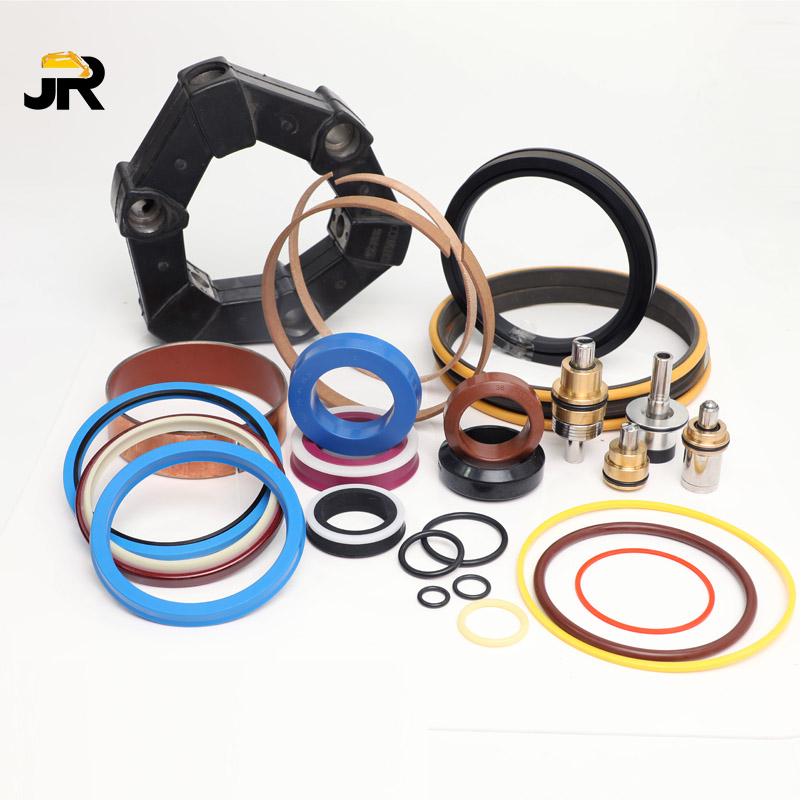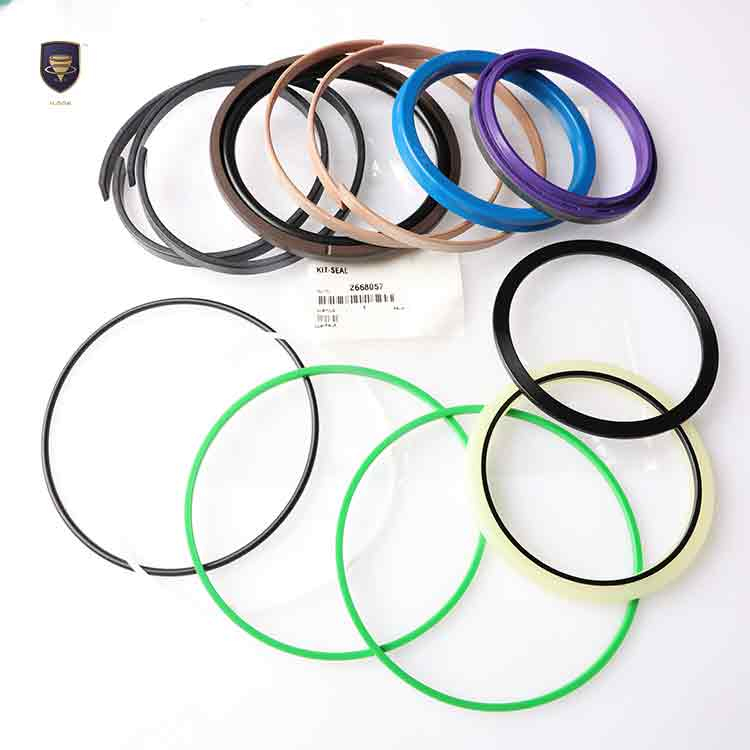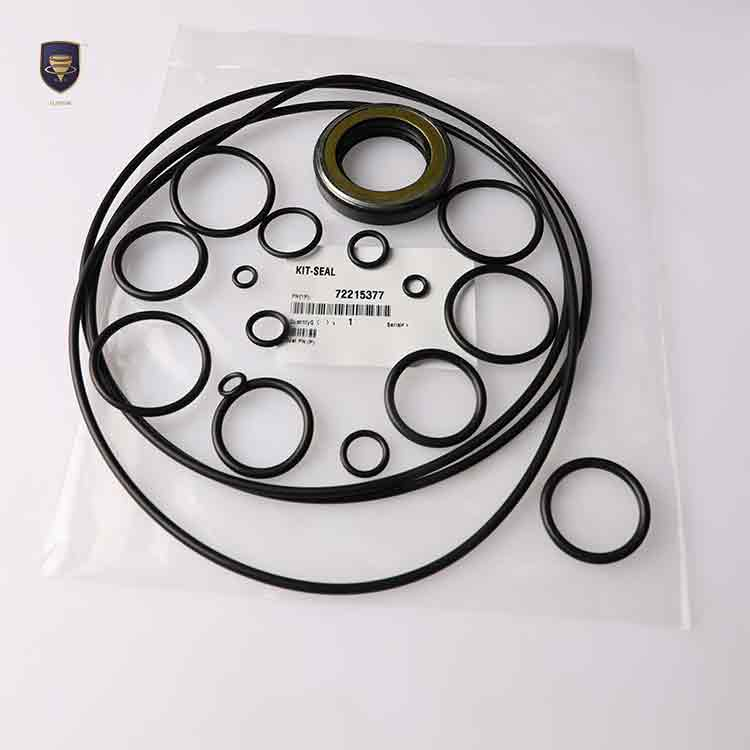Wheel loaders are essential heavy equipment used in industries such as construction, mining, and agriculture. The longevity of a wheel loader is directly linked to its operational efficiency and the cost of ownership. Given the harsh and demanding environments in which wheel loaders often operate, the condition of their seals plays a critical role in determining the machine's lifespan. In this article, we will explore how seals affect the longevity of wheel loaders, and how selecting and maintaining the right seals can significantly extend the machine's service life.

Wheel loader seals are typically made from materials like rubber, polyurethane, or fluorocarbon elastomers. The right material and design choices play a significant role in ensuring the seal’s effectiveness. Key factors to consider when selecting seals include:
Different materials are suited to different working conditions. For example, rubber seals may not perform well under high temperatures, while fluorocarbon seals provide better heat resistance. In highly corrosive environments, polyurethane seals may offer superior durability. Choosing the right material for the seal ensures that it can withstand extreme temperatures, pressures, and environmental factors, extending its life and performance.
In addition to material selection, precise design is essential. The seal’s geometry must be compatible with the various parts of the wheel loader to ensure a tight fit. For instance, seals used in hydraulic cylinders, engines, and transmission systems need to withstand high pressures and resist wear. Improper design or poor sealing can lead to fluid leaks, contamination ingress, and ultimately premature failure of machine parts.
Wheel loaders often operate in challenging conditions, such as extreme temperatures, high humidity, and dusty environments. These conditions can degrade seals over time. For instance, cold weather can cause rubber seals to lose their elasticity, while excessive heat can cause material degradation. Seals must be designed to perform under these conditions, ensuring long-lasting protection and sealing effectiveness.
Even the best seals will eventually wear out due to constant exposure to harsh working conditions. Regular inspection and maintenance of seals can prevent small issues from turning into larger, more costly problems. Periodically checking for signs of wear, cracking, or swelling and replacing seals when necessary can help prevent costly downtime and extend the equipment's useful life.

Despite the best materials and designs, seals may fail over time. Common seal failures include:
Continuous exposure to heat, UV rays, or high pressure can cause seals to lose their elasticity and crack. This results in fluid leakage, reduced system pressure, and impaired performance.
The constant motion and friction between seals and moving components can lead to wear. As seals wear down, they become less effective at preventing leaks, which can lead to system failures.
Seals may become deformed due to uneven pressure or improper fit. Deformation compromises the sealing function, leading to oil leaks and potential system damage.
Seals are susceptible to rupture under extreme mechanical stress or impact. This failure can result in fluid loss, compromising the loader’s operational capabilities.
These failures not only disrupt the wheel loader’s performance but can also lead to extensive repairs, which increase operational costs.

To maximize the longevity of your wheel loader, the following strategies can be implemented:
Select seals made from materials suited to your working environment, such as high-temperature resistant or corrosion-resistant seals.
Regularly inspect seals for signs of wear, cracking, or other damage. Replace worn or damaged seals promptly to avoid further complications.
Ensure the wheel loader is not consistently subjected to excessive loads, as this can increase pressure on the seals, leading to premature failure.
Keeping the work environment as clean as possible reduces the amount of dust and dirt that may infiltrate the loader’s internal systems, which can compromise seal performance.

The lifespan of a wheel loader is closely linked to the condition of its seals. Properly selected, installed, and maintained seals ensure that vital systems remain leak-free and protected from contaminants, which helps reduce wear and tear on the machine’s components. By choosing high-quality seals, maintaining them regularly, and ensuring they are suitable for the operating conditions, you can significantly extend the lifespan of your wheel loader, reduce maintenance costs, and improve overall operational efficiency.
In the end, investing in the right oil seals for your wheel loader is not just about avoiding downtime; it’s about ensuring your machine operates at peak performance for years to come, maximizing your return on investment.

